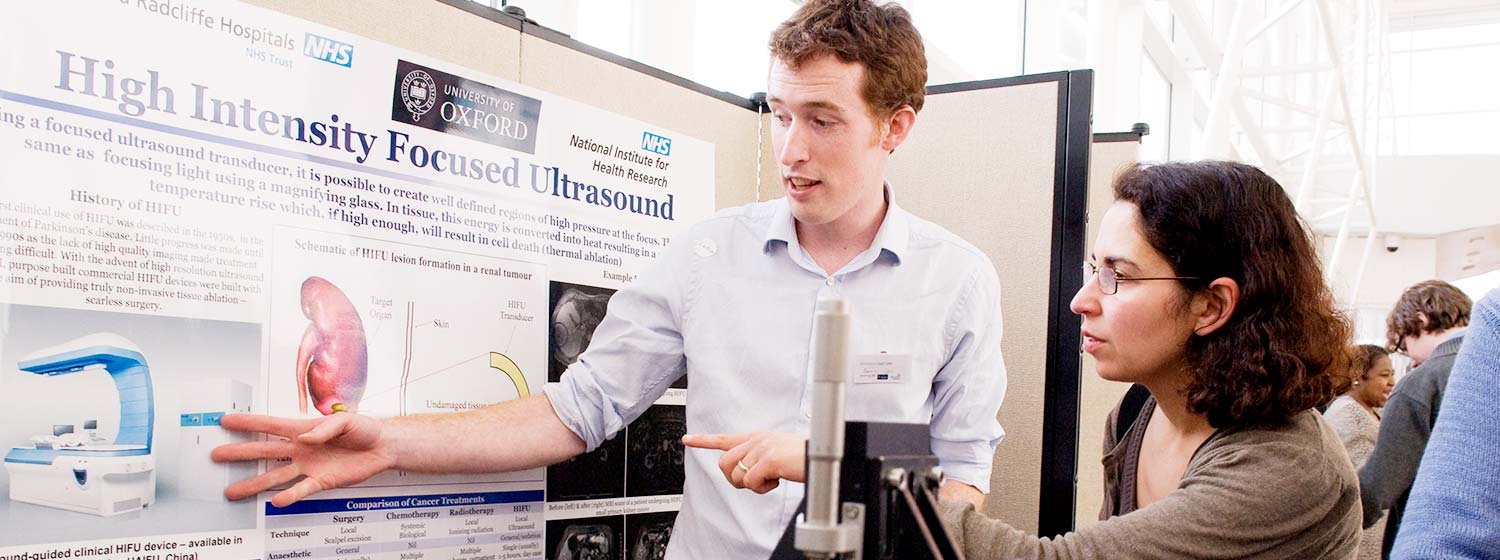Take part in our research
For a full list of trials currently recruiting at Oxford University Hospitals NHS Foundation Trust, searchable by health condition, please visit:
Clinical Research Studies - Oxford University Hospitals
Patient Research Ambassadors
Are you passionate about promoting the importance of taking part in research to the public?
Could you help researchers with their research projects to ensure patients' voices are heard?
A Patient Research Ambassador (PRA) is someone who promotes health research from the point of view of someone who has taken part in research to patients, the public and healthcare professionals.
Activities include:
- talking about your experience of research at events
- talking to the media about your experience of research
- supporting training of researchers so they see their role from a patient point of view
- promoting research through social media such as X / Twitter.
The initiative is managed by the National Institute for Health and Care Research (NIHR), which helps the NHS, public health and social care carry out research.
Information: tvsmpra.nihr.ac.uk | 01865 227252 | comms.crnthamesvalley@nihr.ac.uk
Body bequests
The School of Anatomy at the University of Oxford, which is responsible for training medical students, may accept body bequests.
Tel: 01865 272181
Email: bequests@dpag.ox.ac.uk
For important information about the donation process, and a list of individual contacts for the department, please visit the Human Tissue Authority website.
Organ and tissue donation
The Thomas Willis Oxford Brain Bank accepts brain and spinal cord tissue donations for research from healthy donors and those with neurological disease.
For general enquiries, please contact:
Nicola Spencer: 01865 234904 Tuesday to Friday
Email: nicola.spencer@ouh.nhs.uk / nicola.spencer4@nhs.net
UK Brain Bank for Autism is also looking for volunteers to donate their brains to autism research.





























































